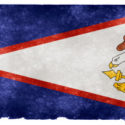On April 10 the website CNN.com ran an editorial by two history professors from USC supporting a lawsuit by five individuals from American Samoa, asking the federal courts to change the legal and political status of all people born and residing in that tiny and remote U.S. island territory. The essay, “Not another Dred Scott case, please,” by Sam Erman and Nathan Perl-Rothman argues that denial of U.S. citizenship to American Samoa is legally, politically and morally equivalent to the infamous pre-Civil War ruling in the Dred Scott case, denying citizenship to fugitive slaves in states and territories where Congress had prohibited slavery.
There is just one problem, Dred Scott went to court seeking to be declared a U.S. citizen because Congress had not done so in the federal law prohibiting slavery in the states and territories where he had resided. In contrast, the island people of American Samoa, who share our country’s nationality but not full citizenship status enjoyed in the 50 states, have not petitioned the courts or Congress to declare citizenship in the territory, much less make it a state of the union with equal rights and duties of citizenship.
Rather, all residents of American Samoa have the very right to equal citizenship that Dred Scott sought. Specifically, people born in American Samoa who have U.S. nationality can move freely between the states and territories, and if they so desire apply for the same full and equal citizenship as every other American residing in a state.
Moreover, if the people of American Samoa were to exercise their right of self-determination under the local territorial constitution and petition Congress to grant citizenship based on birth or naturalization on island, there is no reason to believe Congress would not readily agree to do so. A petition by the local territorial legislature or a majority vote for citizenship in a democratic referendum would be sufficient.
But so far American Samoans have wanted to preserve their current status as loyal and patriotic members of the American political family who possess U.S. nationality and owe allegiance to our nation. What they don’t seem to want is the less than equal U.S. citizenship that has been conferred in other territories, and brings with it the promise but not the reality of an equal balance of benefits and burdens of citizenship. That is because of federal court rulings and laws adopted by Congress that treat territories like states in the exercise of federal power, without representation in Congress, a vote for President or equal civil rights.
Erman and Perl-Rothman decry the fact that all the other territories have U.S. citizenship, but among those territories only the 3.6 million citizens of Puerto Rico are eligible by historical precedent to achieve full and equal rights and duties of U.S. citizenship through statehood. The other small island territories of Guam, Northern Marianas and U.S. Virgin Islands have citizenship without equal rights compared to citizens in the states, so citizenship has gained them less than expected from it.
What people in American Samoa understand better than Erman and Perl-Rothman is that under the U.S. Constitution the rights of U.S. citizenship are secured through the exercise of the rights of state citizenship. Only states have a right to elect two Senators, and fill seats in the House based on population in a state.
Yet, the lawsuit our good professors support does not seek the Congressionally conferred statutory citizenship that Congress is able to enact for the territories under the Uniform Naturalization Clause power. Instead, the lawsuit seeks the same constitutionally conferred citizenship mandated for persons born or naturalized in a state by the 14th Amendment.
The 14th Amendment ended denial of citizenship under the Dred Scott ruling for anyone born or naturalized in a state, and also secured equal rights for all citizens residing in a state. The lawsuit seeking to apply the 14th Amendment to American Samoa would purport to apply the Constitution for the purpose of granting citizenship without securing the full and equal rights of citizenship that come only with statehood.
That is why the elected and traditional leaders and the local government have not sought second class citizenship with less than equal rights as conferred by statute under the Territorial Clause power for the other territories. For now American Samoa prefers to live with U.S. national status and preserve local autonomy from Washington.
If and when that is going to change, it will be based on Congressional recognition of democratic self-determination. It will not go down well if future relations with Washington are dictated by judicial fiat imposed at the behest of lawyers from Washington DC using a few locals for a political stunt as devoid of legal merit and historical truth as the CNN.com editorial by Erman and Perl-Rothman.








One response
Judges are supposed to interpret the law, not make it. This situation must be resolved only by the will of the people. Dr. W. Cleary